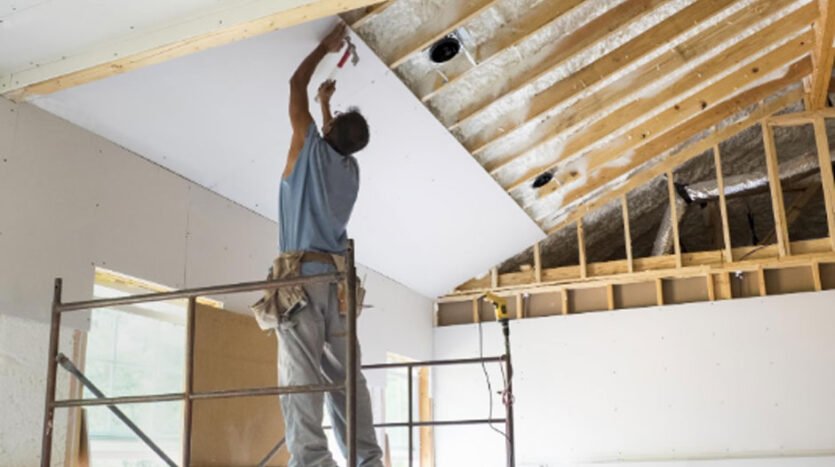An Ultimate Guide to Starting Your Own Drywall Business
Starting a drywall business requires smart skills and patience in this competitive construction industry. Undoubtedly, this business is quite in demand due to drywall installation and finishing services. Plus, it is required in all types of projects: residential, commercial, and industrial.
First ever thing that comes to mind while starting any type of business, you always think: “how much money will I have to invest in the business?”. Well, the good thing about the drywall business is that it requires less budget compared to other trades. But, you have to be pro at methods and the services you offer. From local building codes to managing skilled employees, everything must be on point! As this job is physically demanding and often involves tight deadlines, it requires advanced skills to maintain service quality.
If you are tight on budget, then do not fret at all because professional companies like SMA Estimating LLC offer accurate Cost Estimating Services that will contain a cost breakdown of all elements for starting a drywall business. Now, let us give you an overview to start your own drywall company:
Current Market Pricing
As of 2025, drywall installation pricing ranges from:
- $1.50 to $3.50 per square foot for complete installation, including materials and labor
- $2.24 to $2.65 per square foot for basic installation
- $0.85 to $1.90 per square foot for hanging only (no finishing)
- $0.35 to $1.10 per square foot for taping and mudding services
Drywall Business Basics
What Does a Drywall Contractor Do?
The contractor helps clients with gypsum wall installation, which includes metal stud installation, top and bottom rail fixing, insulation, and finally fixing the gypsum boards.
Core Services Include
- Drywall installation (hanging sheets)
- Taping and mudding joints
- Texturing and finishing
- Repair and patching work
- Insulation installation
- Metal stud framing
What specific skills would I need?
As the owner of your drywall business, get GED or a high school diploma for some programs. For your training, it is good to take courses.
Let us provide you with a summary:
Basic Education
- High school diploma
- Mathematics and shop courses
- Blueprint reading skills
Formal Training
- Community college construction programs
- Trade-specific drywall courses
Hands-On Experience
- Entry-level position with an established contractor
- Internship programs
Advanced Skills
- Supervisory and project management training
- Must have safety certifications (OSHA)
Business Structure and Registration
Get a Limited Liability Company (LLC)
- Personal asset protection
- Flexible tax options
- Professional credibility
Follow the steps for registration!
- Choose Business Name: Check availability and register with the state
- Register Business Entity: File appropriate paperwork with the Secretary of State
- You need to get a Federal EIN, which is applied for through the IRS, for a tax identification number
- Register for state taxes and workers’ compensation
- Local Business License: Check city and county requirements
Which tools and equipment are required?
Cutting Tools:
- Utility Knife: Used for cutting drywall sheets. It’s efficient for making precise cuts and can be used to score the drywall before snapping it along the scored line
- Drywall router for faster, cleaner cuts, and others.
Measuring Tools:
- Tape Measure: Essential for measuring drywall sheets to fit the space accurately. A 25-foot-long tape measure is recommended for measuring larger walls
- Chalk line for marking installation guidelines
- Levels for ensuring straight installation
Installation Equipment
Fastening Tools:
- Drywall Screws and Screw Gun
- Power drill with clutch for torque control
- Most drywall projects will require either #6 (0.1380″) or #8 (0.1640″) drywall screws. The average 4×8 drywall board requires about 32 screws
Lifting and Support:
- Drywall lift for ceiling installation
- Roll Lifter: Holds the bottom sheet tight to the one above to ensure a close joint
- Scaffolding or drywall stilts
- Drywall cart for material transport
Startup Costs and Financial Planning for 2025
For now, if you want to start on a small-scale operation, then you may have to invest $7,000 – $15,000 or more. This is a rough cost that includes the expense of tools, marketing, license, and all other essentials.
If you are starting a medium-scale operation, then you will need $15,000 – $25,000, which will bigger team than a small-scale drywall business. However, for an exact cost estimate, get expert Construction takeoff services because they will provide you detailed count of every element required.
Similarly, if you want to start a big-scale business, then your capital will also be higher. Typically, it starts from $25,000 and covers the cost of all the essential things required for the business.
Marketing Strategies
After the completion of all the registration and hiring, you have to focus on marketing. Create a professional website with a portfolio to showcase to your clients what type of services you deliver.
Plus, make social media accounts and target local users to get speedy attraction towards your business. However, with time, you can grow your business with clients’ reviews, so focus on providing quality drywall services.
Conclusion
Thus, to start a drywall business in 2025, be prepared and do your homework to grow in the market. Without proper planning and funding, you can not survive. To build a profitable business, polish your skills and opt for a good marketing strategy to attract clients towards your services. Keep in mind: never compromise on the quality of your services! So, join hands with a reliable construction estimating company such as SMA Estimating LLC, and start your business with expert opinion and under budget!


